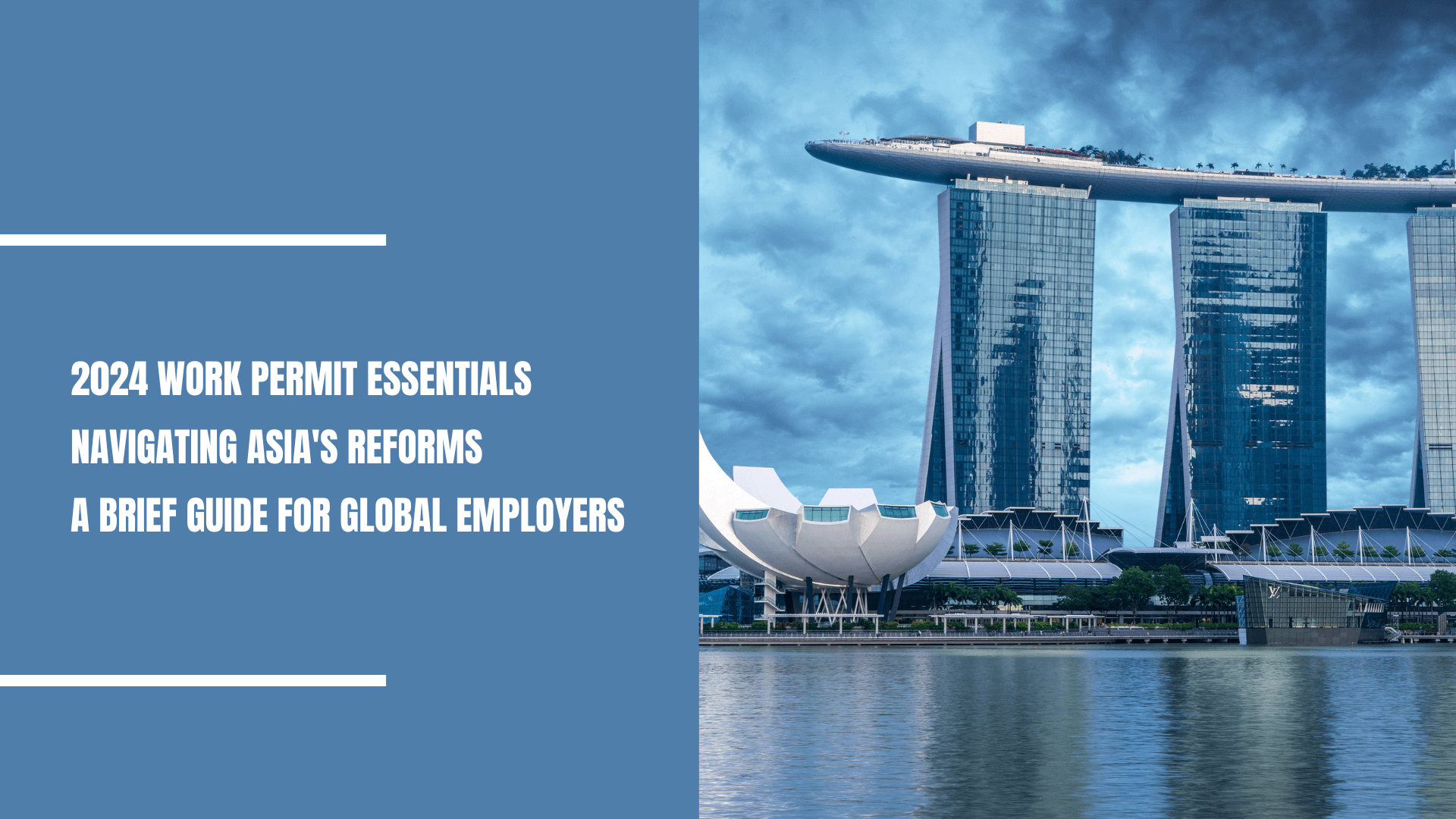2024 Work Permit Essentials: Navigating Asia's Reforms - A Brief Guide for Global Employers

2024 has brought transformative changes to the work permit landscape across Asia, each country tailoring its policies to meet unique economic and social goals. Our guide offers a detailed look into these reforms, providing global employers with the insights needed to navigate this new terrain.
🇨🇳 China: A Technological Leap in Work Permit Processing
China’s integration of advanced technology into its work permit system is a major shift. The country has introduced AI-driven platforms for faster processing and real-time tracking of applications. Biometric verification and e-documentation are now standard, aimed at attracting tech-savvy professionals in AI, biotech, and renewable energy sectors. Employers must adapt to this high-tech approach, ensuring their candidates meet the stringent criteria set for these specialized fields.
🇯🇵 Japan: Precision Targeting of High-Skill Talent
Japan’s work permit system now heavily favors highly skilled professionals, particularly in emerging technologies, advanced healthcare, and academic research. The government has introduced a tiered points system where candidates with higher qualifications and experience in these sectors gain expedited processing. Employers must align their recruitment strategies to these sectors, focusing on attracting candidates who score high on Japan’s points system.
🇮🇳 India: Streamlining for IT and Outsourcing Professionals
India’s reforms are tailored to strengthen its position as a global IT and outsourcing hub. The government has simplified visa processes for IT professionals, software engineers, and BPO specialists, with faster turnaround times and reduced bureaucratic hurdles. Companies in these sectors will find it easier to bring in international talent, but must stay updated with the specific compliance requirements that accompany these streamlined processes.
🇸🇬 Singapore: Balancing Global Talent with Local Workforce Needs
Singapore’s work permit reforms in 2024 focus on a balanced approach. While the country continues to attract global talent in finance, tech, and biotech, there’s a renewed emphasis on local workforce development. The Fair Consideration Framework has been strengthened, requiring employers to demonstrate efforts in hiring locally before seeking foreign professionals. This necessitates a strategic approach in talent acquisition, ensuring compliance with local workforce development policies.
🇰🇷 South Korea: Fostering a Diverse and Innovative Workforce
South Korea’s updated work permit regulations aim to foster a diverse and innovative workforce. The country has introduced new visa categories for entrepreneurs, digital nomads, and cultural professionals, alongside traditional sectors like technology and manufacturing. These categories come with specific criteria, such as investment requirements for entrepreneurs and cultural exchange programs for artists. Employers must navigate these new categories to tap into a broader talent pool.
💼 The Role of Employer of Record (EOR) Services
In this complex landscape, EOR services are invaluable for managing the intricacies of each country’s work permit system. They provide expertise in local employment laws, assist with the application process, and ensure compliance with regulatory changes. EOR services are particularly beneficial for companies without local HR infrastructure, offering a streamlined solution for international talent management.
🔍 The 2024 work permit reforms in Asia present a nuanced landscape for global employers. From China’s high-tech approach to South Korea’s focus on cultural and innovative talents, understanding these country-specific changes is crucial. Utilizing EOR services can greatly simplify this process, allowing companies to focus on their core business while ensuring compliance and successful talent integration.
#WorkPermit2024 #AsiaEmploymentLaws #GlobalHRStrategy #TechTalentAcquisition #CulturalDiversityInWorkforce #EORBenefits #HRCompliance #InnovativeHiringPractices #BusinessExpansionAsia #FutureOfWorkTrends


